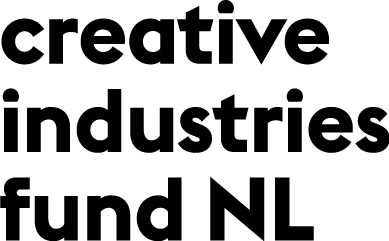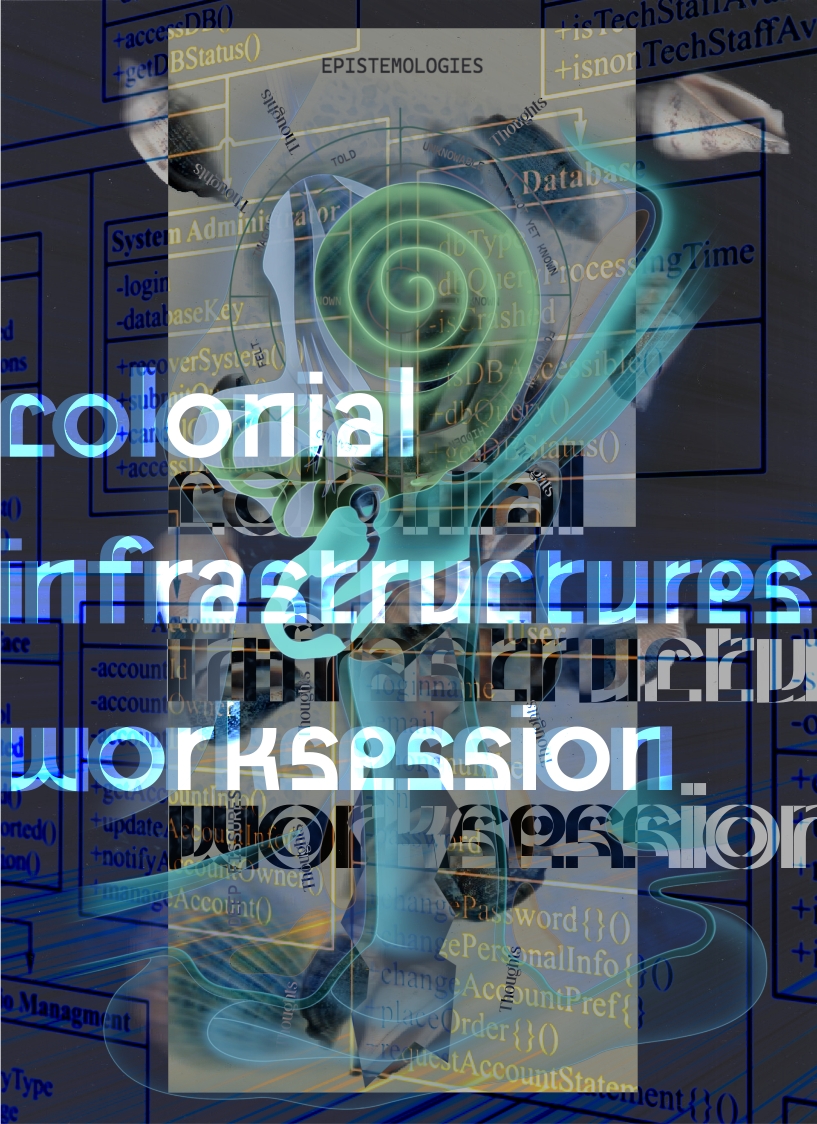Date: Friday, 27 October 2023
Time: 10:30 - 16:30 (free lunch for participants)
Open Screening: 17:00 - 18:30
Location: Varia, (Gouwstraat 3, Rotterdam)
Note: this session will be held in english
Participation: is limited, to join please send an email to info@varia.zone with [colonial infrastructures] in the subject.
This worksession intends to be a moment of collective learning, to make tangible invisible colonial mechanisms of hierarchy and oppression that are prevalent in everyday communication technologies, yet often difficult to comprehend.
On this day we will be joined by creative technologist and researcher Yasmine Boudiaf. In the morning Yasmine will present a series of artistic research projects exploring cultural (dis)connections across time and geography using AI and anti-colonial methods. As an Algerian and a creative technologist, Yasmine explores how she and other displaced peoples could reconnect with intangible heritage, reviving and contextualising shared cultural memories as well as building new collective approaches to AI practice. This presentation spotlights three of Yasmine’s current projects: 1) An Algerian Techno-Ritual; how can auto-ethnographic visual art be made without reproducing the colonial gaze? 2) Mediterranean Hand Gestures; this interactive project uses a camera to detect hand gestures and audio to produce corresponding verbal sounds. 3) AI Justice Matrix: The Futility of Policy Craft; an online platform and collaborative authorship project that invites the perspectives of practitioners concerned with our relationship with technology.
In the afternoon we will interrogate themes from the presentation using 2D Listening Structures Yasmine developed as tools for collective imagining. As ideas travel through these structures, the nature of these ideas changes, with the output determined in the commons.
Our worksession will close with the open screening of selection of artist films that respond to themes of the day. We will share artist and filmmaker Riar Rizaldi's 'Fossilis' and 'How Many _____ Does It Take?' by Simnikiwe Buhlungu and Tessa Mars..
"What separates the Earth, mind, body and machines? 'Probably nothing' argued a future archaeologist.
A glimpse into the far future: in search of the ultimate truth about the past, meditates with her brain-machine interface of a crude neural network, machine learning and virtual world-building, a paleo-media-ontologist—with the help of a researcher—digs and scavenging the imagination of the past to recontextualise and reflect what it is called fossil relic in their time; a mountain of invisible electronic waste buried in a tropical landscape of the South". [Fossilis]
Taking a cue from Not In Between, a chapter in Fred Moten’s book Black and Blur (2017), 'How Many _____ Does It Take?' tells the story of Dédée Bazile, a heroine within Haiti, and Imvo Zabanstundu a newspaper in South Africa. This video conversation between the artists documents a history of emancipatory politics in Haiti and South Africa. Both accounts are ‘delayed responses’ in their own respective ways. Although the histories that the artists recount differ, there are also similarities, for example they both recall how their personal histories have shaped their artistic practice.
bios
Yasmine is an Algerian creative technologist and researcher based in London. She is a fellow of the Royal Society of Arts and the Ada Lovelace Institute and was recognised as one of '100 Brilliant Women in AI Ethics 2022'. Her projects interrogate the impact of new technologies on cultural life. She is currently developing a series of artistic research projects exploring cultural (dis)connections across time and geography using AI and anti-colonial methodologies.
Riar Rizaldi works as an artist and filmmaker. He works predominantly with the medium of moving images and sound, both in the black-box of cinema settings as well spatial presentation as installation.
Simnikiwe Buhlungu, was born in Johannesburg, South Africa and is currently based in Amsterdam, where she recently completed a two-year residency at the Rijksakademie. She holds a BA in Fine Art from the University of the Witwatersrand in Joburg. Through her solo work, and the collective, Title in Transgression, which she co-founded, her practice navigates personal, trans-generational and socio-historical narratives through print and text-based mediums that often take sensory, video, sonic and installation-based forms.
Tessa Mars (1985) is a Haitian visual artist born and raised in Port-au-Prince. She completed a Bachelor's degree in Visual Arts at Rennes 2 University in France in 2006 after which she returned to live and work in Haiti. Tessa Mars is an Alumn of the Rijksakademie Van Beeldende Kunsten (2020-2022). She currently resides in Puerto Rico.
The worksession is organised by amy pickles and Sofia Boschat-Thorez.
[alt text] poster is a collage of scanned shells, a diagram of how an ear works, graphic representation of database including the terms ‘user’ and ‘system administrator’, and two of Yasmine Boudiaf’s listening structures; ‘epistemologies’ and ‘deep fissures’. The title colonial infrastructures is written on the top, overlayed twice in pairs. Every layer of the collage has transparency and their colours are inverted.
This project is supported by the Creative Industries Fund NL.

